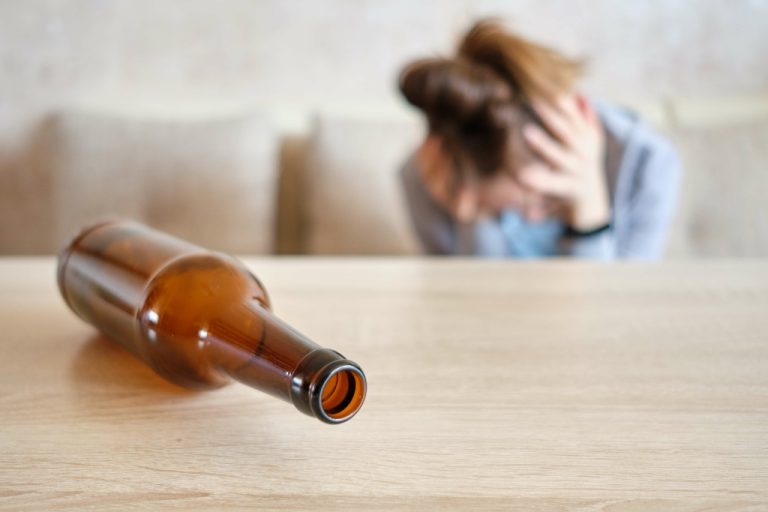The prospect of change engages people in an inner dialogue about hope, disappointment, and accountability. Saying a mantra, substituting thoughts of recovery goals, praying, reading something recovery-related, reaching out to someone supportive—all are useful tactics. Planning in advance a way out of high-risk situations—whether an event, a place, or a person—helps support intentions in the face of triggers to use.
- These tips are meant to provide guidance and support, but it's important to tailor them to individual needs and circumstances.
- Understanding why you relapsed is often one of the most important parts of truly overcoming a substance use disorder.
- This can be difficult and draining, so make sure to take care of yourself physically and emotionally.
- Ultimately, Lembke says, this is a universal problem – not one limited to those of us struggling with the disease of addiction – that has come with living in modern life.
- Instead, people can benefit from using the relapse as a new opportunity to reevaluate and reinvestigate their treatment.
The Preparation Stage
On average, medical detox treatment tends to last for four days, as this is how long most acute symptoms of withdrawal last. As people progress through the stages of change in recovery, the treatment journey can take many shapes. Some people start at the highest level of care, such as a residential treatment program, and then “step down” to therapy and aftercare. Others start at a lower level of care, such as self-help support group meetings, counseling, or outpatient treatment, and move into a more intensive type of care if needed. The process isn’t always linear, and people may go through several treatment episodes before they experience long-term recovery.

How Can I Tell if I Need Substance Abuse Help?
Identify other factors in your life—relationships, work—that can help take the focus off addictive behaviors. Researchers have studied the experiences of many people who have recovered from substance use and identified key features of the recovery process. One widely used model can be summed up in the acronym CHIME, identifying the key ingredients of recovery. For many of those who are addicted, enduring even that action is unimaginable.

Why Are Drugs Difficult to Quit?
But many inpatient programs ask you to take a break from talking to friends and family members. If you have unavoidable commitments like childcare, this can be a barrier to treatment. People who need more flexibility might consider outpatient care programs instead.
How Addiction Affects Individuals
- The body and brain work to maintain a state of balance known as homeostasis.
- For example, they may need more of a substance to get the same effect, face problems in relationships because of their drinking or using, or want to cut down but aren’t able to.
- During this phase, individuals may experience withdrawal symptoms, cravings, and emotional and physical discomfort.
- It can take several attempts to achieve long-term maintenance, with return to use rates as high as 60 percent.
- But abruptly quitting substances such as benzodiazepines or alcohol can be potentially dangerous, so always consult your doctor to come up with a detox plan.
- Another is that those caught up in addiction frequently feel too much shame about their problem to share their struggles with anyone else.
A small group of adolescents relapsed when facing interpersonal difficulties accompanied by negative emotions and social pressures to drink or use. Treatment and education can help adults learn techniques for handling urges and ways of accepting and managing negative emotions. Treatment and information aimed at adolescents can help them learn techniques for managing both positive and negative emotional states. Not only is addiction relapse common, relapse is not considered a sign of failure. In fact, people in recovery might be better off if the term “relapse” were abandoned https://soundkey.ru/alkogolizm-priznaki-u-zhenshchin-simptomy-i-stadii-lechitsya-li-zhenskii-alkogolizm/ altogether and “recurrence” substituted, because it is more consistent with the process and less stigmatizing.
Free Apps to Help You in Addiction Recovery

While relapse is a normal part of recovery, for some drugs, it can be very dangerous—even deadly. If a person uses as much of the drug as they did before quitting, they can easily overdose because their bodies are no longer adapted https://esenin.ru/o-esenine/gibel-poeta/lagunovskii-a-prichina-samoubiistva-sergeia-esenina to their previous level of drug exposure. An overdose happens when the person uses enough of a drug to produce uncomfortable feelings, life-threatening symptoms, or death.
Today, this myth is so widespread that many people think it’s a fact. You may have heard it takes 21 days to form or change a habit.1 That just isn’t true. It all started with a misunderstanding of Dr. Maxwell Maltz’s research. Withdrawal can often accompany physical symptoms like nausea, vomiting, and diarrhea. Your loved one might need help with practical tasks like preparing meals, going to the bathroom, and getting around. If http://peacekeeper.ru/en/news/32630 possible, offer to help with these tasks so your loved one can focus on healing.

Overcoming addiction requires committing to change, seeking support, and eliminating triggers. The main treatments for substance use disorder are detox, counseling, and medication. This timeline doesn’t change how long it takes to break old habits. You might experience cravings long after your yoga practice becomes routine. For example, ADHD affects the way you form habits.5 If you have that diagnosis, you may need more time to solidify new coping skills. Over time, excessive drug or alcohol use changes your neurochemistry.3 Substance use disorder impacts your brain’s prefrontal cortex, which governs decision-making and impulse control.
